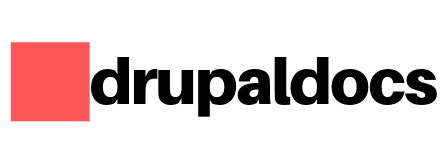Data/Research
Financial betting is a business that relies on information. Many sources can be accessed for free. However, getting the data, you need to trade your markets successfully is worth paying. You can always beat someone with better data, so it pays to stay ahead.
Data and News
News is the biggest driver of market sentiment. News is the biggest driver of market sentiment. Markets will react quickly to news breaking. The actual price adjustments will occur after the news has been fully digested. You can interpret the news alone or with one of the market analysts’ opinions. However, it is not consistently a good idea to agree with others. A thorough examination of market-moving variables will allow you to explain confusing price movements and may even help you spot a significant change before others.
Local news stories can significantly impact individual stocks and tangential news about suppliers and clients. While international events can affect the entire market, industry-specific impacts like those that impact the oil price should be considered. A higher oil price can benefit other fuel sources such as Wind power and nuclear. It is a good idea to bookmark industry-specific websites. A useful start-point is the financial directory linked below.
You should set up email alerts to receive notifications whenever relevant information about your markets occurs. These can be accessed from any significant Finance portal like Yahoo. You can also use the internet broadcasting of finance channels like Bloomberg to help you in your online work. Certain companies also provide corporate news feeds. Bloomberg, Reuters.ADVFN, Yahoo Finance, and Motley Fool offer a lot of information for free. ADVFN provides live data, and Medved Quote Tracker, a free program that streams data directly into an interface, can give data sources.
Technical Analysis
This type of analysis provides predictive information by looking at the price of a commodity/ share/ index. There are two types of research: the simple ones that use moving averages, support/ resistance areas, and the more complex branches like Elliott Waves or Fibonacci. While some people trade solely on technical analysis, others analyze fundamentals. Charts are handy and provide a lot of information. Every trade should include at least some research on the charts.
Fundamental Analysis
This analysis is the traditional way to examine a stock. These factors include the Industry sector, Dividends, yields, market capitalization, earnings, projected earnings, growth rates, etc. It is a company’s future growth rate and a valuation that is being evaluated. Prices are then derived from this. Fundamental should not be the only method of assessing a company. It should be used in conjunction with other tools and factors.
It is difficult to choose between and choose a Spread Betting broker due to the increasing number of brokers. Below are my top 10 criteria. They are recorded in order of their importance to me. While this list can be debated, and it should be, priorities may change from person to person and over time.
1. Regulation
This point must be a top priority. If the broker isn’t regulated, I will leave without hesitation. You must ensure that your money is safe and secure. Your broker should, at minimum, be FSA-regulated.
2. Reliability
Everyone relies on the internet today, and it is expected that all services we use around the clock will be available. The same expectation can now be placed on a broker.
A reputable broker has proven to be reliable across large client bases.
3. Markets/Availability
I only trade highly liquid, widely available Foreign Exchange and Indices market. This lets me be confident that the calls I want to change are open. If not, it will be a poor broker.
However, I make sure that the market is available when I trade it. This doesn’t just mean I want to place orders at the correct times. It also means that the market must be available when I exit a trade or expect a Stop/Target to be honored.
For me, it isn’t very sensible to have a broker who only offers foreign exchange markets between 06:00 and 22:00. I require a broker who offers 24-hour execution.
4. Interface
For me, what’s important is: Ease in locating markets, easy order/trade entry, and efficient trade management of open trading.
I can find the markets where I want to trade and be able to set up orders/execute trades (with Stops & Targets) (I don’t sell without them). It is also important that I monitor open positions, adjust them, gauge my exposure, change Stops, etc. I can’t be on the screen constantly and feel anxious if I’m not.
5. Execution
It is essential to execute efficiently. Execution must be at the agreed price, and it must happen immediately. Slippage is an acceptable overhead in trading, but it should not be tolerated. I expect slippage to be less than 5% in my trades. Anything more than that, I will consider changing my broker.
6. Spread
Not as critical as it once was. Spreads for liquid instruments that I trade are more competitive now that there is more competition.
7. Support
It is essential to ensure that the broker has a strong support network. This can also be verified online (forums, etc.).It is an excellent picture to test it at least once per quarter.
Know how to contact your broker via email, phone, or online chat. These details should be clearly understood and kept on hand. They are printed in large font and kept on my wall.
This lesson is not for you to learn the hard way.
8. Charting Package
The reason I’m happy with my Charting packages is simple. They are familiar to me, and I know them well. The Charting package they offer is irrelevant to my decision-making process when looking for a broker. It may surprise some that it is near the bottom of my list.
I’ve found that traders will have their charting packages of choice when they reach the “reasonably skilled” stage.
9. Guaranteed Stops
Because I trade Forex and Indices with brokers that offer 24/7 trading, I am more comfortable accepting the risk of intraday gaps than paying the increased spread to guarantee a stop. It is up to the person to decide how they view risk and take the higher space associated with guaranteed stops.
10. Additional Functions
This is my last list item, but it may be the most important. Increasing competition has led to many brokers offering and satisfying most of these requirements automatically. They must, or they wouldn’t be in business.
My broker of options, IG Index, comes with a value add. They offer a “Stepped” trailing stop, the ability to place market orders at the current demand expense, and an Advanced Charting Package, which is my preferred Charting package.
It is a “nice-to-have” feature and is number ten on the list. This feature shows that you should never stop searching for a broker that suits your needs every year. Many brokers are releasing new functionality more frequently than others, and some offer reasonable incentives for you to test their unique functionality.
Navigating Tomorrow’s Terrain: The Evolving World of Financial Betting
As we look towards the horizon, the realm of financial betting is transforming at a breakneck pace. This evolution is driven by a confluence of factors: groundbreaking technological innovations, ever-shifting regulatory landscapes, and the continuous ebb and flow of market dynamics. The strategies that serve investors well today might not cut it in the future. Let’s dive into the key trends and tactics that are set to redefine this vibrant market.
Harnessing the Power of Tech
In the world of financial betting, technology is more than just a tool – it’s a catalyst for change. The emergence of artificial intelligence (AI) and machine learning (ML) is opening doors to possibilities once thought impossible. These technologies dive deep into the ocean of data, fishing out market trends and even venturing to predict what’s next. We’re seeing trading algorithms and systems evolve to a point where they can act with remarkable speed and precision. And let’s not forget blockchain – a beacon of hope for heightened transparency and security in financial transactions.
Keeping Pace with Regulations
As financial betting gains momentum, it’s catching the eye of regulatory bodies. The landscape here is akin to a complex puzzle, with pieces constantly shifting. Traders are finding themselves in a position where staying abreast of regulatory changes across various markets is not just beneficial, but essential. This diligence is key to not only steering clear of legal pitfalls but also maintaining a trustworthy image in the financial arena.
The Diversification Doctrine
The age-old wisdom of diversification continues to hold sway in financial betting. With the advent of new players like cryptocurrencies and the unpredictable nature of traditional markets, spreading one’s bets across diverse assets is more than just prudent – it’s critical. The art of risk management, wielding tools like stop-loss orders and strategic hedging, is indispensable in navigating these turbulent waters.
Community and Learning in the Social Sphere
The rise of social trading platforms is reshaping the way traders connect and learn. These platforms aren’t just about following seasoned investors; they’re melting pots of discussion and insight-sharing. For the greenhorns in trading, these platforms are goldmines of practical experience and exposure to a kaleidoscope of trading philosophies.
The Ethical Investment Wave
A new trend is gaining momentum: sustainable and ethical investing. Traders are increasingly weighing the environmental, social, and governance (ESG) implications of their investments. This isn’t just about making moral choices; it’s a strategic consideration as ESG factors can profoundly influence long-term investment outcomes. Consequently, financial betting platforms are adapting, offering a broader array of ESG-focused investment options.
In Conclusion
The future of financial betting is marked not just by rapid technological progress and a labyrinthine regulatory environment, but also by ever-evolving market trends. Success in this arena hinges on staying informed, being adaptable, and practicing astute risk management. As traders chart their course through these challenges, they must also seize the opportunities that arise, be it leveraging cutting-edge tech, engaging in communal learning, or investing sustainably. The financial betting landscape is more dynamic than ever, and those who can skillfully navigate its intricacies are poised to reap substantial rewards.


